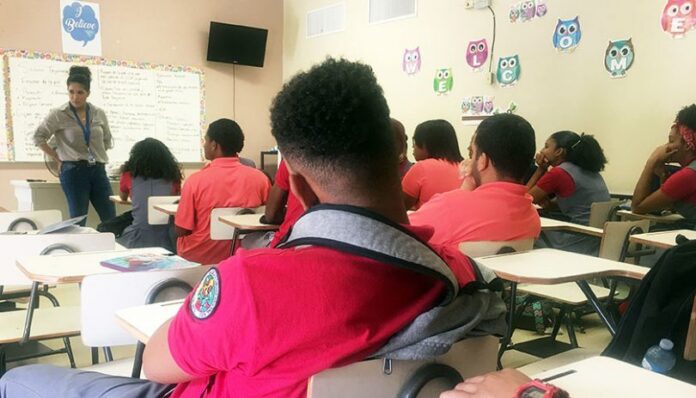
By Stacy M. Brown, NNPA Newswire Senior National Correspondent
House Republicans are set to decide the fate of Title I education grants, a federal program providing critical support for low-income students nationwide. The proposed cuts, amounting to nearly 80 percent, have raised concerns about the future of educational opportunities for disadvantaged children.
The vote, which hinges on a procedural motion to advance spending bills, represents a final play to appease hardline Republicans and demonstrate the party’s commitment to enacting sweeping, year-long spending reductions. However, experts caution that this move will do little to avert an impending government shutdown scheduled for Sunday.
An in-depth analysis by Bobby Kogan and Jean Ross of the Center for American Progress, a leading liberal think tank, reveals that Republicans had proposed 12 bills that would slash nondefense discretionary spending by an alarming $58 billion beyond the previously agreed amount between President Biden and House Minority Leader Kevin McCarthy in May when they brokered a deal to raise the debt limit. Notably, the analysis excludes Department of Veterans Affairs medical care spending.
The proposed cuts are far from uniform, with some government programs set to face more severe reductions than others. Surprisingly, several bills championed by House Republicans would result in increased spending rather than the anticipated reductions.
Of particular concern is the analysis showing that a quarter of all projected savings from the House Republicans’ bills hinge on an unprecedented 80 percent reduction in funding for Title I education grants, a cornerstone of support for low-income schools, potentially saving $14.7 billion.
Even the recommendations made by the Center for Renewing America, a think tank run by Russ Vought, the former director of the White House budget, are less drastic than the proposed cuts to Title I education grants. Title I is instrumental in providing essential financial assistance to local educational agencies striving to meet state content and performance standards in reading, language arts, and mathematics. The impact of such cuts would be felt nationwide. For example, District of Columbia Public Schools (DPS) have 88 Title 1 schools and campuses, which means each possess a poverty rate of at least 35%. According to DPS, Title I schools allocate 1% of the Title funding for parent and family engagement activities that strengthen the collaborative relationship between the school and the families.
“Title I funding helps fill in the gaps that have existed in all our systems for generations, especially in our public schools,” Becky Pringle, president of the National Education Association, told reporters. “It is unconscionable that House Republicans would try to strip away desperately needed funds from our most vulnerable, most marginalized students.”


